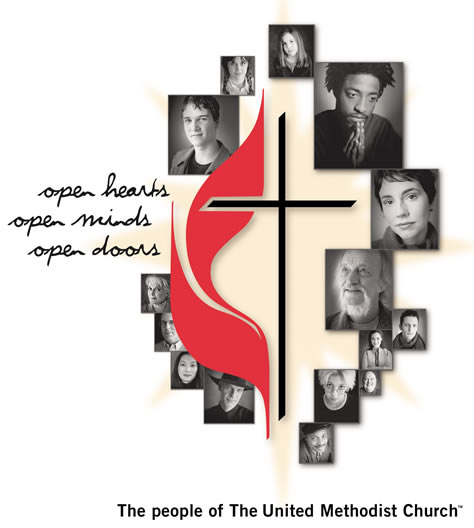"Church diversity intrigues us, whether one is affiliated or unaffiliated with a particular religion, sect or denomination.
Today, many churches are exploring the idea of adding diversity to their congregations, and charge themselves to invite different cultures into their church families.
Many congregations in the United Methodist Church (UMC), a denomination that 6.2 percent of America's population identify themselves with, are at the forefront of this movement. Their conferences, pastors, and members feel called to invite individuals different from themselves into their sanctuaries for worship and spiritual growth within the community.
But what does "different" mean to the people of the UMC?"
This is a section from a friend at SMU who wrote an article about the United Methodist Church and its struggles with being "different." So I ask his question again, "what does different mean to the people of the UMC?"
I take a different spin on the question in hope of answering it. What can we do to be different? Since its beginning the Book of Discipline has stated that “the practice of homosexuality is incompatible with Christian teaching. Therefore self-avowed practicing homosexuals are not to be certified as candidates, ordained as ministers, or appointed to serve in The United Methodist Church.”
Now before I begin with this blog entry, I will say that I will not take a stance on the homosexuality issue. I have no answers. I am not the judge, I believe we should leave that up to God. I do believe, though, that we as the UMC should re-evaluate some of our rules and regulations.
In the past year the United Methodist Church lost 55,000 members. That is the equivalent to every single church in Louisiana plus some. Recently at Centenary College Adam Hamilton, pastor of the Church of the Resurrection, the largest United Methodist Church in America located in Leawood, Kansas, told us that roughly 91% of people who do not attend church do so because the church hates homosexuals. 71% do not attend because the church is, according to them, hypocritical.
In my friends article he also says this, "My favorite thing about the UMC is its tag-line, "Open Hearts, Open Minds, Open Doors."
What does this statement mean? Do we honestly apply it our everyday life, and the everyday life of the church? Its a tough question to answer.
Recently, 33 Retired Bishops made a public statement in support of ending the gay clergy ban. The statement is the result of a prayerful consideration of the Bible, the church’s Wesleyan heritage and the bishops’ experience and “conviction of God’s intention for a world transformed,” the document says.
"For more than five years after her retirement, Rader (Bishop Sharon Z. Rader) was the bishop in residence at Garrett-Evangelical Theological Seminary in Evanston, Ill. In that capacity, she said, she met with many seminary students who had the gifts and calling for ministry but were gay or lesbian."
Now I will acknowledge that clearly in the Bible it says that homosexuality is an abomination. But the Bible also preaches against NUMEROUS things that we STILL do. Homosexuality is one thing, but there are several other laws and rules that we break every single day.
Like I have said before, I do not have the answers to this long-standing question. I do know that, as a church, we need to evaluate some of the things we do. Obviously they aren't working for us anymore.
I would really love to hear feedback on this issue, I myself am a candidate for ministry in the United Methodist Church. I love this church, but I hate to sit back and watch it die. There are some things we can do. This issue, whether we like it or not, is going to get addressed, and it need to get re-evaluated time and time again. There are some changes that need to be made.
May we finally live up to our motto of Open Hearts, Open Minds, Open Doors...
Shalom



